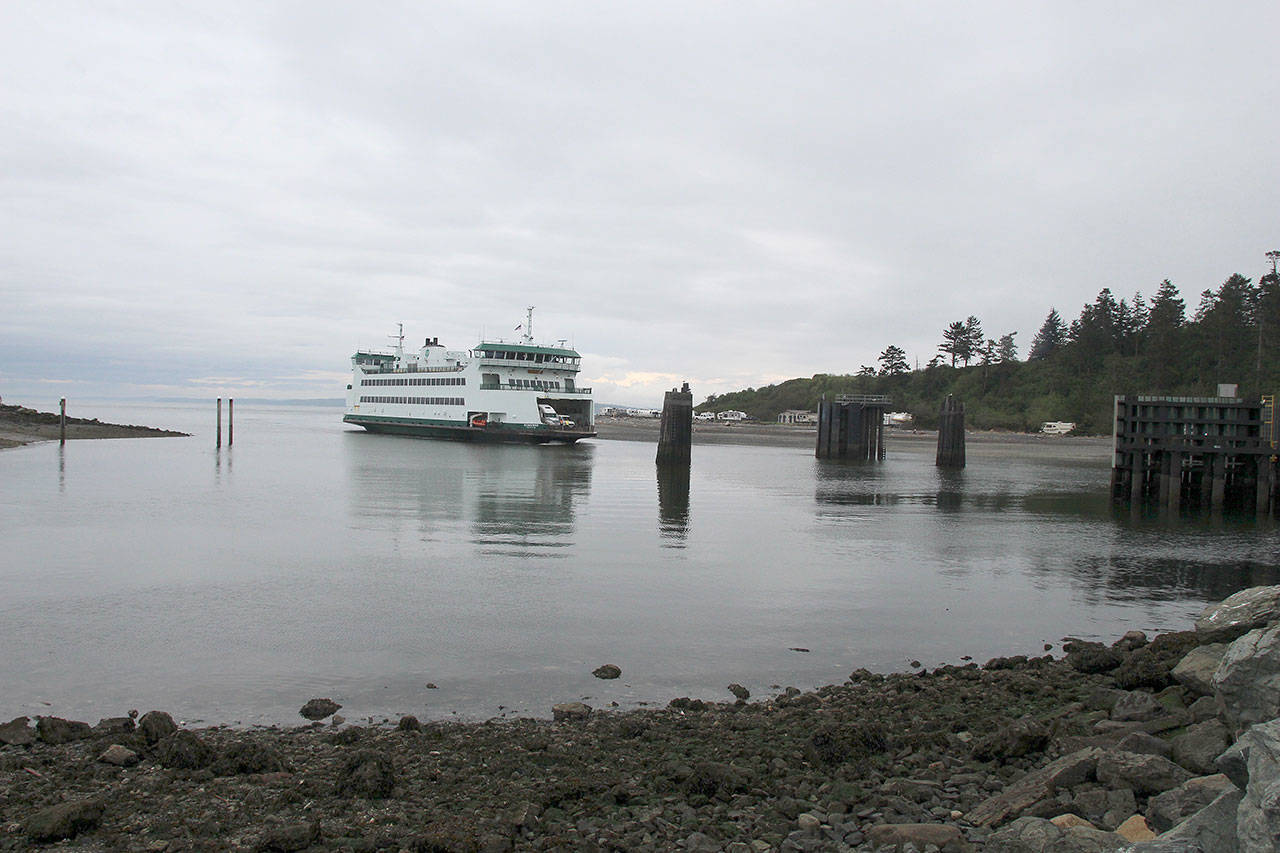For some Whidbey Island residents, the ferries are an essential part of life.
For others, they represent an occasional experience.
But one thing they all seem to have in common is an opinion on ferry service.
Washington State Ferries is holding a series of meetings in the region, including one on Whidbey, to talk about its 2040 Long Range Plan, proposed fare increases and local issues. Officials want to hear what people have to say.
A meeting is scheduled for 6 p.m. Wednesday, May 1 at the Island County Commissioner’s Hearing Room, 1 NE 7th St., Coupeville.
Chairman of a state advisory committee for the Coupeville ferry has concerns about the state’s plans — or lack of plans — for that run, and especially Keystone Harbor.
“It’s narrow, shallow and subject to cross-currents that are very dangerous,” Chairman Ralph Young said.
The problems, he said, led to “millions of dollars in lost revenue to the ferry system, more repair costs for multiple groundings and lost tourism dollars for Island and Jefferson counties.”
The long-range plan does call for a solution, but it’s too far out in time, he said.
Also, he said, the route doesn’t support either current or expected growth.
On South Whidbey, the chairman of the Clinton ferry advisory committee said in an email that the long-range plan puts proper emphasis on building replacement ferries for the aging fleet, but he also has concerns.
David Hoogerwerf said the plan doesn’t adequately address growth and doesn’t take into account engineering complexities and life-cycle costs of moving to a hybrid-electric fleet.
Also, he said he believes the plan fails to fully address the issue of getting more people to walk on boats. It doesn’t call, for example, for more links with buses going to additional locations.
“It has been shown that around 30 percent of the commuter traffic to Mukilteo on a daily basis is destined for locations not adequately served by transit,” he wrote.
Another solution, he said, might be for State Ferries to work with local groups to provide overnight parking in Mukilteo.
In addition, Hoogerwerf said a proposal to partially fund the new ferries with an 11 percent fare increase is a bad idea. Historically, fares were dedicated to operational costs.
The ferries are part of the state highway system, he pointed out, and should be capitalized across the state as every other state highway project is.
“This huge fare increase will impact our Whidbey Island economy,” he wrote, “and lifestyle by putting ferry commuting, and other mainland trips, financially out of reach for some residents.”
The meeting on May 1 will include a brief presentation and then an opportunity for members of the public to ask questions and share comments.



